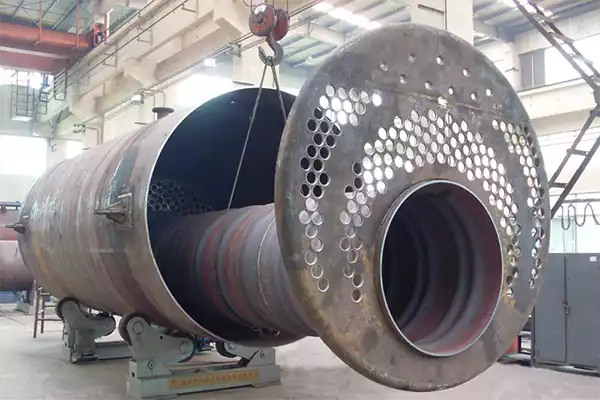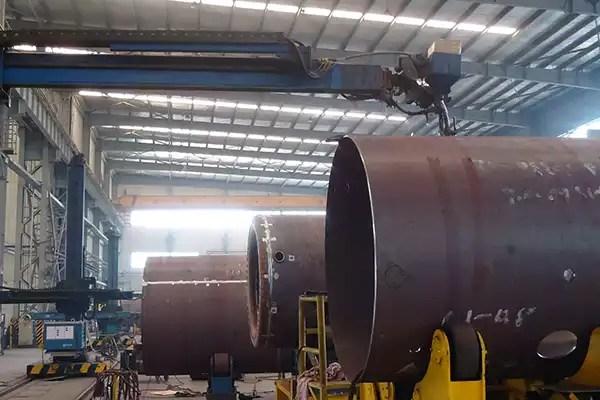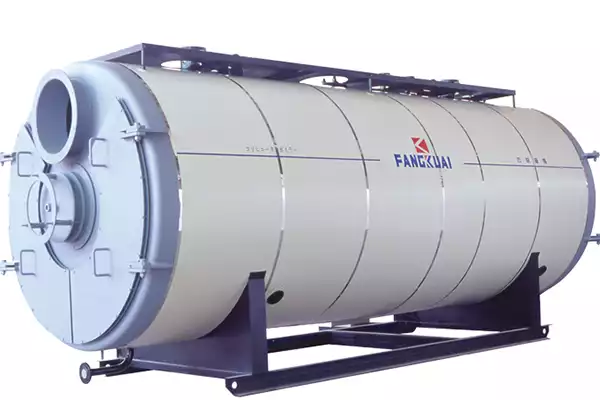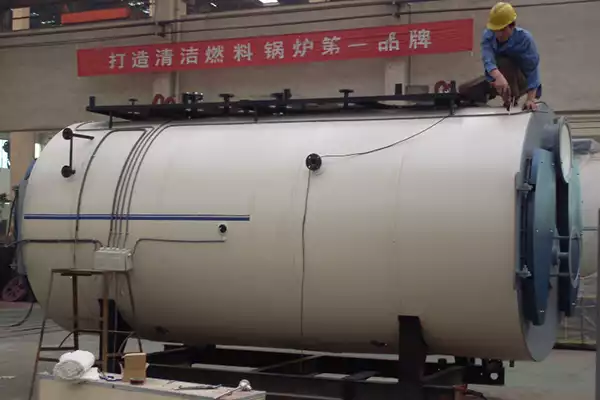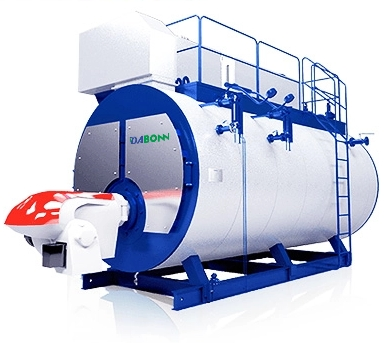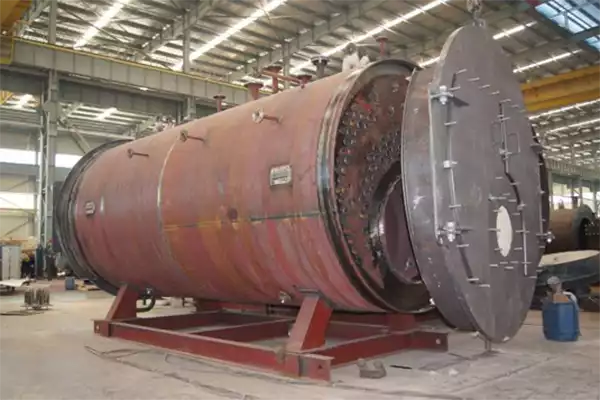
Introduction.
When it comes to boilers, the choice of materials is crucial to ensure their performance, durability, and safety. Here we will discuss the different types of boiler materials and their advantages/disadvantages so that it will help you to decide which type of boiler suits your needs best.
Which material is used for boiler?
There are five main materials used for boilers: stainless steel, carbon steel, aluminum, and copper. Titanium and zinc are also sometimes used as a component of other alloys.
Stainless Steel
- Advantages: Stainless steel is a popular choice for boilers due to its exceptional resistance to corrosion and staining. Not only is it extremely durable, but also withstands high temperatures and pressure.
- Applications: Stainless steel is commonly used in both residential and industrial boilers, especially in environments where water quality may be a concern. It’s suitable for high-temperature applications and is often used in heat exchangers and condensing boilers.
Carbon Steel
- Advantages: Carbon steel is known for its strength and affordability. It is readily available and can handle high temperatures and pressures.
- Applications: Carbon steel is often used in industrial boilers where cost-effectiveness is a primary concern. It’s suitable for applications where corrosion resistance is not a critical factor.
Aluminum
- Advantages: Aluminum is lightweight and has excellent thermal conductivity. It is also resistant to corrosion.
- Applications: While aluminum is not commonly used for the primary construction of boilers, it is occasionally used in certain heat exchanger components, particularly in residential and small-scale boilers.
Copper
- Advantages: Copper is an excellent conductor of heat and has good corrosion resistance. It is also malleable and easy to work with.
- Applications: Copper is used in some residential and commercial boilers, particularly in heat exchangers. However, it may not be suitable for high-temperature and high-pressure applications.
Titanium
- Advantages: Titanium is highly corrosion-resistant, even in aggressive environments. It is also lightweight and strong.
- Applications: Titanium is rarely used for boiler construction due to its high cost. However, it may find applications in specialized, high-performance boilers, especially in situations where corrosion resistance is critical.
Zinc
- Advantages: Zinc is primarily used as a protective coating rather than a primary boiler material. It offers corrosion protection when applied as a galvanized coating to steel surfaces.
- Applications: Zinc is commonly used for galvanizing the outer surfaces of carbon steel boilers to prevent corrosion and extend their lifespan.
What is the material of boiler tubes?
Boiler tubes play a vital role in carrying hot gases and transferring heat within the boiler. They are typically made from various materials, each suited for specific applications:
- Steel: Carbon steel tubes are commonly used for most boiler applications due to their strength and cost-effectiveness.
- Stainless Steel: Stainless steel tubes are preferred in situations where corrosion resistance is essential, such as in high-temperature or corrosive environments.
- Nickel Alloy: Nickel alloy tubes are utilized in specialized applications, especially when high-temperature resistance and corrosion resistance are critical.
- Copper: Copper tubes find application in smaller boilers and low-pressure systems due to their excellent heat conductivity, but they are less common in larger industrial boilers.
- Iron: Iron tubes are not a typical choice for boiler tubes due to their susceptibility to corrosion, especially at high temperatures.
What material is commonly used in boiler drums?
Boiler drums are crucial components where steam and water separation occurs. The materials used for boiler drums are selected based on their strength and resistance to high-pressure and high-temperature conditions. The most common are:
- Stainless Steel: Stainless steel is a common choice for boiler drums due to its corrosion resistance and strength, making it suitable for withstanding the harsh boiler environment.
- Carbon Steel: Carbon steel is also widely used for boiler drums, particularly in industrial boilers, where cost-effectiveness and durability are paramount.
- Aluminum: Aluminum is rarely used for boiler drums, primarily due to its lower strength compared to steel alloys.
- Nickel Alloys: In specialized applications with extreme conditions, nickel alloy boiler drums may be employed to ensure corrosion resistance and high-temperature strength.
- Nickel and Copper: A combination of nickel and copper is occasionally used in specific applications for their unique material properties, but this is less common.
What is the material of the boiler gasket?
Boiler gaskets serve as sealing components. they are typically made of soft and malleable materials, such as copper or brass. These materials provide a good seal and can conform to irregular surfaces, ensuring a tight closure.
What is the material of boiler insulation?
Boiler insulation is essential to minimize heat loss and improve energy efficiency. Common insulation materials are fiberglass, wool, rock wool, and glass wool. These materials have excellent thermal insulating properties and can withstand high temperatures.
The boiler insulation is usually installed in the boiler shell or on the inner surface of the boiler casing. It could create a thermal barrier that keeps the heat inside the boiler. Thereby reducing energy consumption and ensuring safety.
What is the material of the boiler refractory?
The material of the boiler refractory is vitrified clay bricks. These bricks are known for their high resistance to heat and are used to line the combustion chamber and other high-temperature areas.
The refractory is responsible for protecting your boiler tubes from the heat generated by the combustion. And helps maintain the boiler’s structural integrity while reducing radiation heat loss from the furnace.
Conclusion.
In summary, selecting the right materials for different components of a boiler is essential to ensure its efficiency, safety, and longevity, taking into account factors such as temperature, pressure, and corrosion resistance. We hope that this article has provided you with a good overview of the different materials used in boilers. If you want to know more about each one, please feel free to contact us and we’ll be happy to help!
FAQs.
Are boilers made of steel?
Yes, boilers are commonly made of steel due to its strength and heat resistance.
What is the steel material for boilers?
The steel material used for boilers is typically carbon steel or alloy steel, with specific grades designed for high-temperature applications. These materials offer the necessary strength and heat resistance required for efficient and safe boiler operation.
Which metal is best for boilers?
The choice of the best metal for boilers depends on various factors, including operating conditions and budget considerations. However, stainless steel and carbon steel are widely used and considered excellent choices for boiler construction.
What material is used for boiler steam pipes?
Boiler steam pipes are typically made of materials such as carbon steel, stainless steel, or alloy steel. The choice of material depends on factors like temperature, pressure, and the specific requirements of the steam system.
What material is boiler heat exchanger?
Boiler heat exchangers are often constructed from materials such as stainless steel or copper. They have excellent heat transfer properties and corrosion resistance, especially in high-temperature water environments commonly found in boilers.
Get your best price
Quickly compare 3 FREE quotes
- Engineer quick quote
- The overall delivery speed is fast
- Financial choice
- Low installation costs and cost savings
25 years+ of boiler R&D
More than 20 innovative technologies
